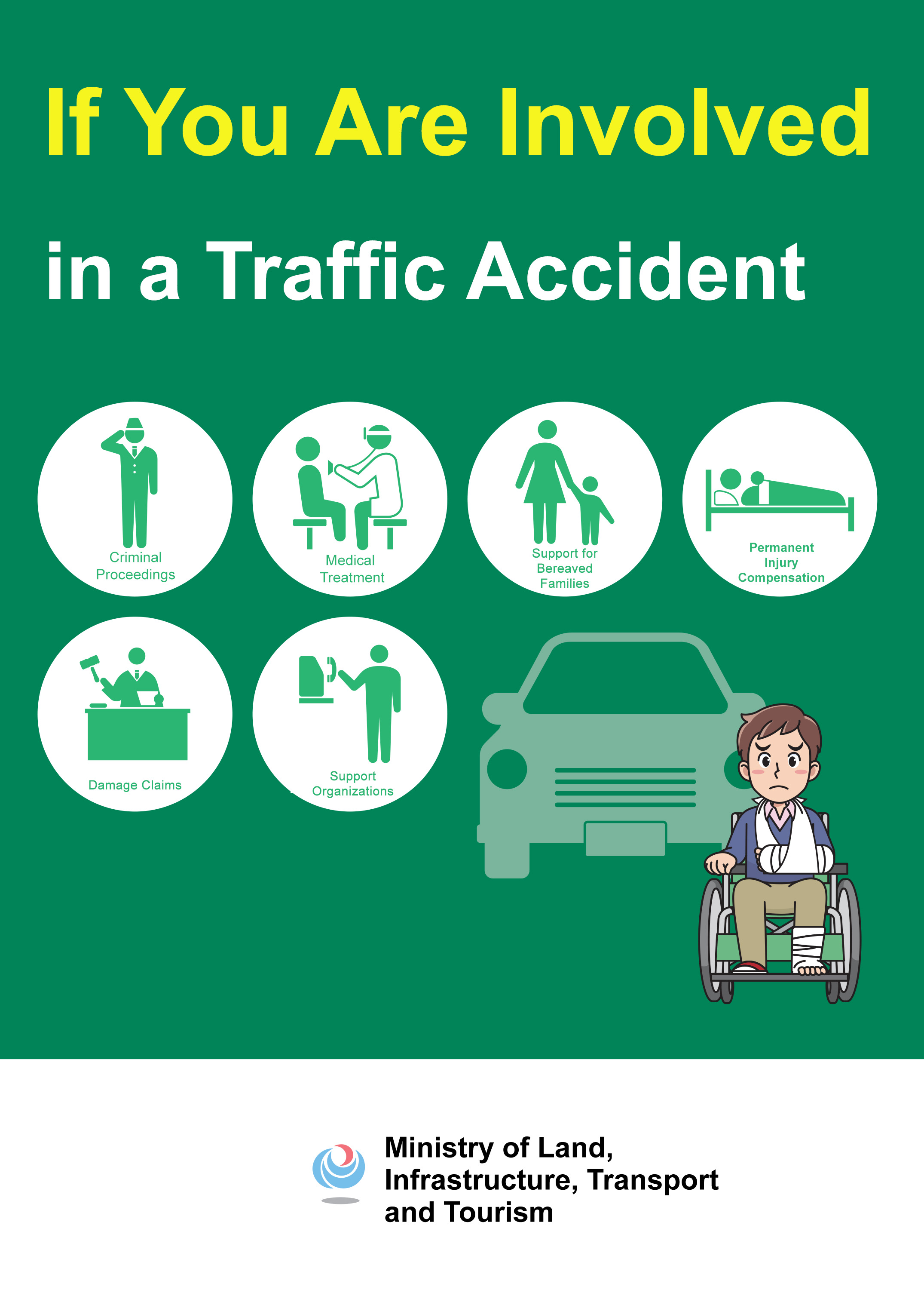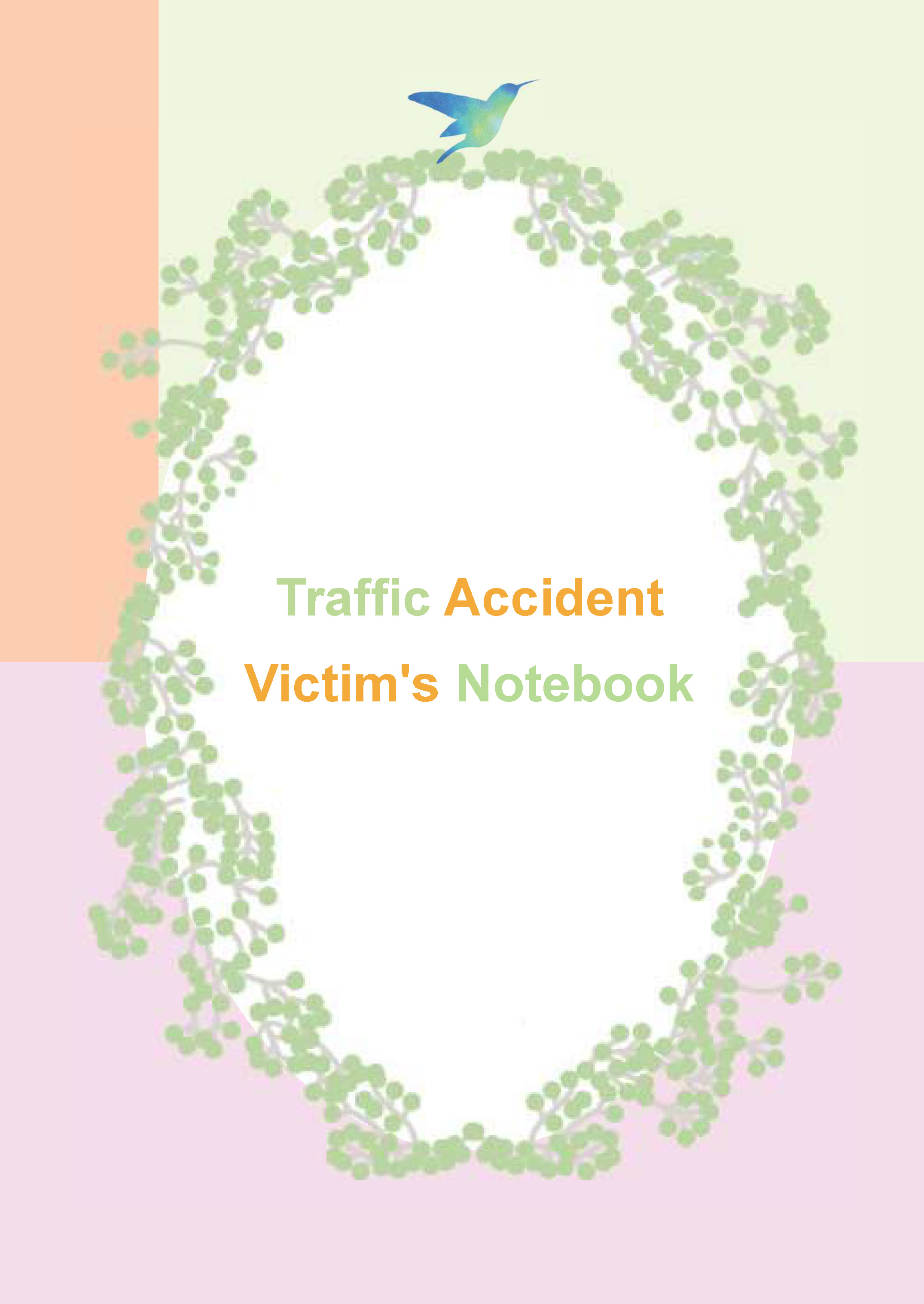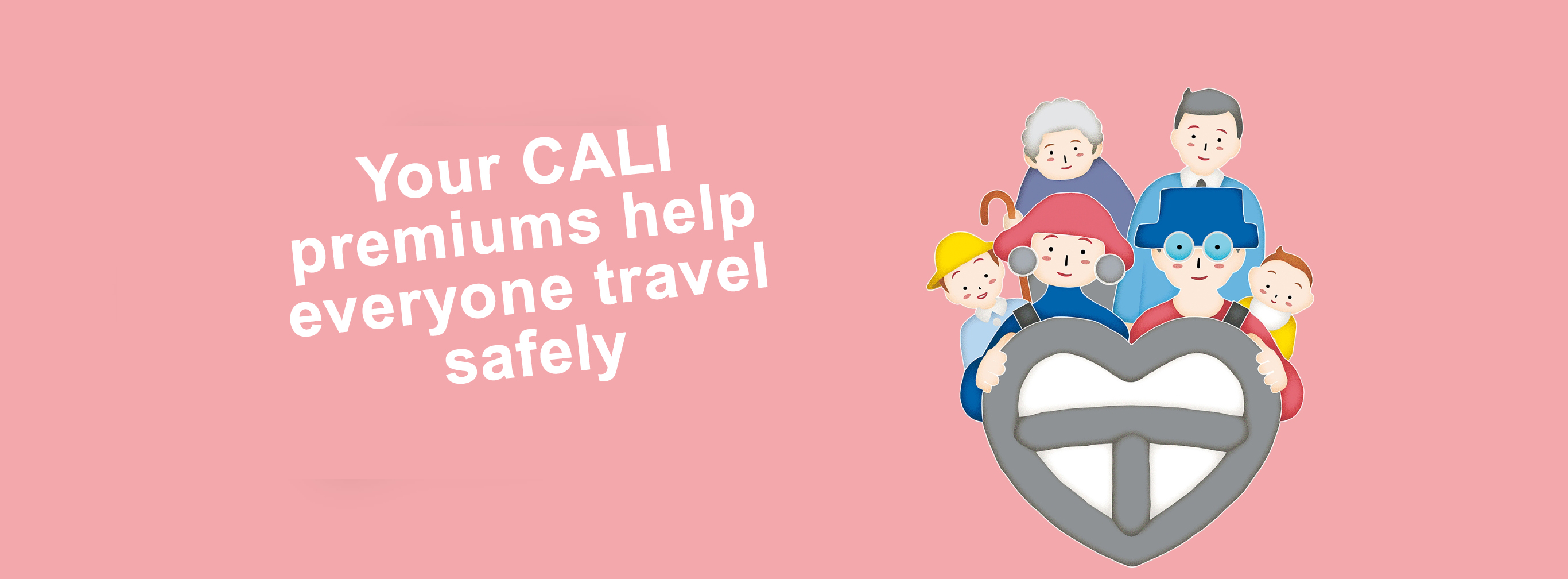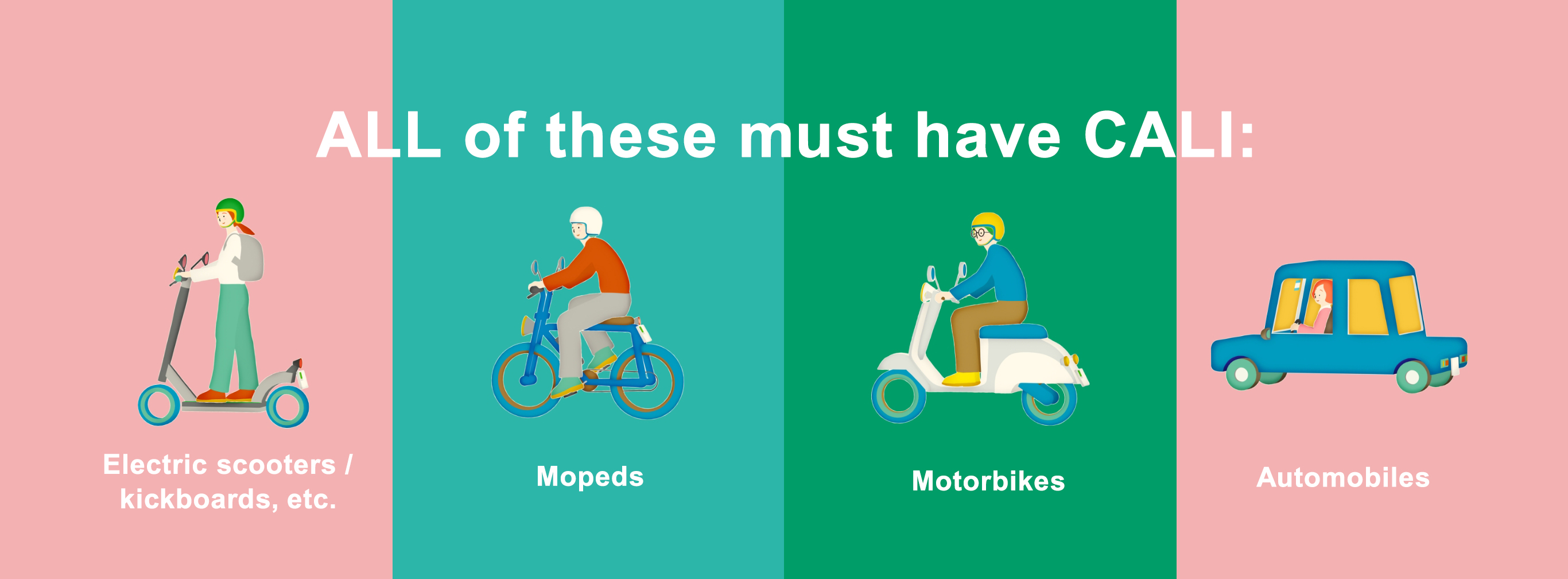What is the CALI System?
The CALI system is a combination of three systems: CALI and mutual insurance, victim support, and accident prevention measures. CALI payments (mutual insurance payments) received from CALI (mutual insurance) policyholders are used to compensate for the injuries or deaths of others in accidents while driving, to support victims of traffic accidents and their families and bereaved families, and for various projects aimed at preventing accidents.

CALI (Mutual Insurance), together with victim support and accident prevention measures, complement each other in order to support accident victims and reduce the number of people who suffer the same hardships as accident victims and their families and bereaved family members, thereby promoting road safety.
Role of the CALI System
1 CALI (Mutual Insurance)
A non-life insurance company (mutual insurance association) compensates the accident victim for financial damages for personal injury in the form of a CALI payment (mutual insurance payment). Payments are made from the reserve for CALI (mutual insurance) premiums (mutual insurance premiums). CALI premiums are reviewed annually and adjusted as needed, following the "no-loss, no-profit" principle.
2 Government Insurance Program
The Government Insurance Program is a program in which the government (MLIT) pays the amount of damages, within the legal limit, to victims of accidents caused by hit-and-run or uninsured vehicles that are not covered by CALI (mutual insurance).
The premiums are paid from the contribution* (4 yen per car per year since April 2023) included in the premiums.
- *Contribution: Money paid to carry out a certain project
3 Victim Support
The program offers several forms of assistance. This includes treatment and rehabilitation at 12 facilities nationwide, nursing care payments for victims receiving home care, and support for children orphaned by traffic accidents. The system is funded by revenue from a new contribution established in April 2023 (125 yen per car per year), a reserve fund, and transfers back from General Accounts.
4 Accident Prevention Measures
The program promotes the introduction of advanced safety vehicles (ASVs). It enhances operation management for trucking and other transportation by introducing ICT technology, and conducts vehicle assessments to encourage the selection of safe vehicles and the development of safety technology. It also conducts accident prevention measures such as aptitude assessments for drivers of buses, trucks, taxis, and other vehicles. The system is funded by revenue from a new contribution established in April 2023 (125 yen per car per year), a reserve fund, and transfers back from General Accounts.
Please use this information to ease your
concerns and for support.

If You Are Involved in a Traffic Accident
The Ministry of Land, Infrastructure, Transport and Tourism (MLIT) has prepared a pamphlet titled "If You Are Involved in a Traffic Accident." This pamphlet informs and guides people who have been involved in a traffic accident about various systems and procedures. The challenges you face due to a sudden traffic accident will change over time. Please use the information in this pamphlet according to your situation at the time.

Traffic Accident Victim's Notebook
MLIT has created the “Traffic Accident Victim's Notebook” with the hope of providing support to automobile accident victims. The notebook allows victims and their families to record accident details and provides information about support systems available through police, local governments, and private victim support organizations. We also hope that it will provide support to all accident victims, and help to ease their concerns.

